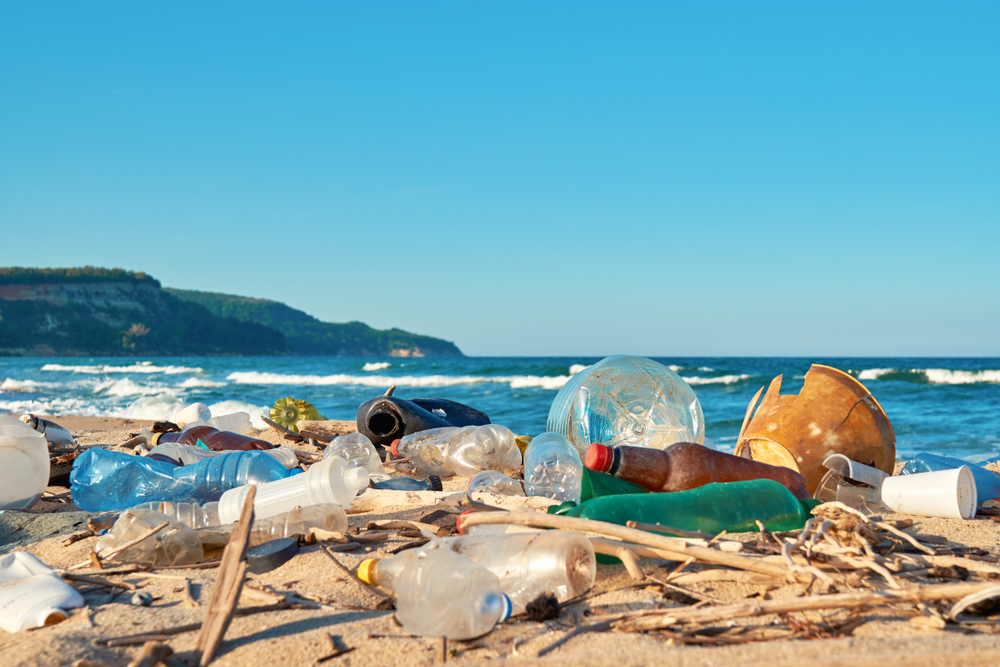Part of the Food Policy Snapshot Series
Policy name: Ordinance 19-30, Single-Use Plastics Ban
Overview: In December 2019, the Honolulu City Council passed a single-use plastics ban that is scheduled to go into effect in January 2021.
Location: Honolulu, Hawaii
Population: 0.3 million
Food policy category: Environmental health, climate change
Program goals: To reduce solid waste, to protect the environment, to reduce climate change, and to protect the health of humans, animals, and marine life.
How it works: Beginning on January 1, 2021, food vendors will be banned from providing plasticware, including utensils, straws, foam plates, cups, and food containers. In January 2022, additional plastic food ware will be included and all other businesses will also have to adhere to the policy.
Failure to comply with the law may result in a fine of up to $1,000 per day. Exemptions may be made if businesses are unable to find reasonable non-plastic replacements, such as biodegradable cutlery.
In recent months, some restaurants have argued that the January 2021 start date should be delayed. Food vendors are concerned that the increase in cost of non-plastic materials will be too much to endure on top of the financial hardships many have already been facing during the COVID-19 pandemic. Councilman Tommy Waters has said that he is willing to work with businesses to give them more time to comply, but at the time of this writing, no official updates have been made.
A plastic bag ban has been in effect throughout Hawaii since 2015.
Progress to date: The bill was first introduced in July 2019. The Honolulu City Council passed it on December 4, 2019, and the mayor signed it into law on December 15, 2019.
Why it is important: The islands of Hawaii are known for their beaches, yet many of these beaches are now polluted with plastic waste. The Center for Biological Diversity’s Hawaii director, Maxx Phillips, has said that “ocean plastic pollution is a crisis” in Hawaii. Plastics choke marine life, contaminate the water, and infiltrate the food system. Eight million tons of plastic enter our oceans each year. A report from the World Economic Forum in 2016 stated that if we continue on the same trajectory with plastic use and pollution, plastics will outweigh fish in the ocean by 2050.
Furthermore, the production and incineration of plastics globally releases 850 million tons of greenhouse gases into the atmosphere each year, which could increase to 2.8 billion tons by 2050 and thus have a significant impact on climate change.
Between marine pollution and greenhouse gas emissions, plastic production and waste negatively impact food systems. Marine wildlife is dying and suffering intestinal damage from ingesting plastics, and the fish that humans eat may be contaminated with microplastics that can be toxic in high doses. Climate change has harmful effects on food systems, as changes in temperatures and increases in natural disasters leave crops and livestock unable to grow or develop properly and reduce the nutritional quality of these food items.
Program/Policy initiated: The first phase of the policy is scheduled to go into effect on January 1, 2021, and the ban will be fully enacted by the end of 2022.
Point of contact:
Tommy Waters, Honolulu City Council, District 4
Phone: (808) 768-5004
Email: tommy.waters@honolulu.gov
Similar practices: Costa Rica plans to ban all single-use plastics by 2021. Canada has passed a similar law that will ban many plastic items by the end of 2021. New Delhi, India, banned all single-use plastics in 2017. Seattle was the first US city to ban plastic straws and utensils in July 2018. Several other countries and cities have implemented various plastics bans, some that include only plastic bags or plastic straws to others that include all single-use plastics.
Evaluation: The policy has not yet gone into effect and therefore has not been evaluated.
Learn more:
- Increased plastic pollution due to COVID-19 pandemic: Challenges and recommendations (Chemical Engineering Journal)
- International Policies to Reduce Plastic Marine Pollution from Single-Use Plastics (Plastic Bags and Microbeads): A Review (Marine Pollution Bulletin)
- Plastics: Danger Where We Least Expect It (Harvard T.H. Chan School of Public Health)
- Single-Use Plastics 101 (Natural Resources Defense Council)
References:
- 16 Times Countries and Cities Have Banned Single-Use Plastics (Global Citizen)
- Businesses Want Oahu’s Plastic Utensils Ban Delayed (Star Adviser)
- Canada Will Ban Single-Use Plastic Items by the End of Next Year (CNN)
- Chamber of Commerce Asks City to Delay Plastic Ban that Takes Effect in 2021 (KHON 2)
- Costa Rica Wants to be the First Country to Ban All Single-Use Plastics (World Economic Forum)
- The Effect of Climate Change Across Food Systems: Implications for Nutrition Outcomes (Global Food Security)
- EPA: Waters Around Two Hawaii Beaches Impaired by Plastic Pollution (Center for Biological Diversity)
- Global Efforts to Curb Single-Use Plastics (Earthday.org)
- Hawaii Restaurant Association Wants Delay on Plastics Ban (KITV ABC4 Island News)
- Historic Single-use Plastic Ban Passes in Honolulu (Surfrider Foundation)
- Honolulu City Council Passes Ban on Single-Use Plastic (Associated Press News)
- Honolulu City Council Passes Ban on Single-Use Plastics (US News)
- The New Plastics Economy Rethinking the Future of Plastics (World Economic Forum)
- Ordinance 19-30 (Honolulu City Council)
- Plastic and Human Health: A Micro Issue? (Environmental Science and Technology)
- Plastic Waste and Climate Change – What’s the Connection? (World Wildlife Foundation)


